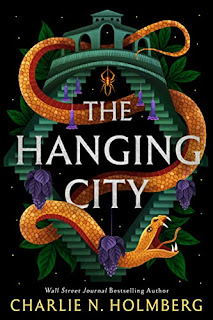Not so much a murder mystery novel but a history book about London during the Reformation - Murder in St Paul's by Richard Dale
I expected to go reading and reviewing a murder mystery when I picked this book from a reviewers website. However it turned out to be a dramatised history book.
Early 16th century England: the churches are all powerful and the clergy rules like princes or maffioso. Within the religious circles but also among the commoners an interest has grown to return back to the Bible as a source of Christianity and to study it in the common language and recognising only 2 sacraments instead of 6. The church regards that as heresy and people are even burned at the stake. When a wealthy London merchant takes the church to court he is declared a heretic and found dead in his cell. His widow wants to find out what happens.
Yes it still sounds like a murder mystery does is not. But the novel focusses on all the people involved in the case and many outsiders with a link to the Reformation. Even for someone like me with a Protestant upbringing and a love for history the first half was quite hard to get through. But it does give an interesting and very detailed view of living in London in those days and is filled with all kind of facts. Did you know that Sinterklaas as celebrated in Holland with straw laid out for his horse in front of the chimney is in fact Wodan / Odin on his horse Sleipnir?
The second half was a lot better and is more focussed on the widow. So in the end you do some murder mystery at last.
What is a real plus of this book is that it gives you an idea of how this tumultuous period was for people living in it. First the Lollards who wanted to read an English bible and were persecuted for it, Then the influence of Luther and then Henry XIII declaring England free from Rome and abolishing priesthood.
What reminded me of my own mother was the reflection at the end of the widow that Jesus declared that his father had many rooms in heaven and that she had to admit that there were also Catholic bishops going to heaven. just like some Protestant martyrs.
4 stars out of 5






Comments
Post a Comment